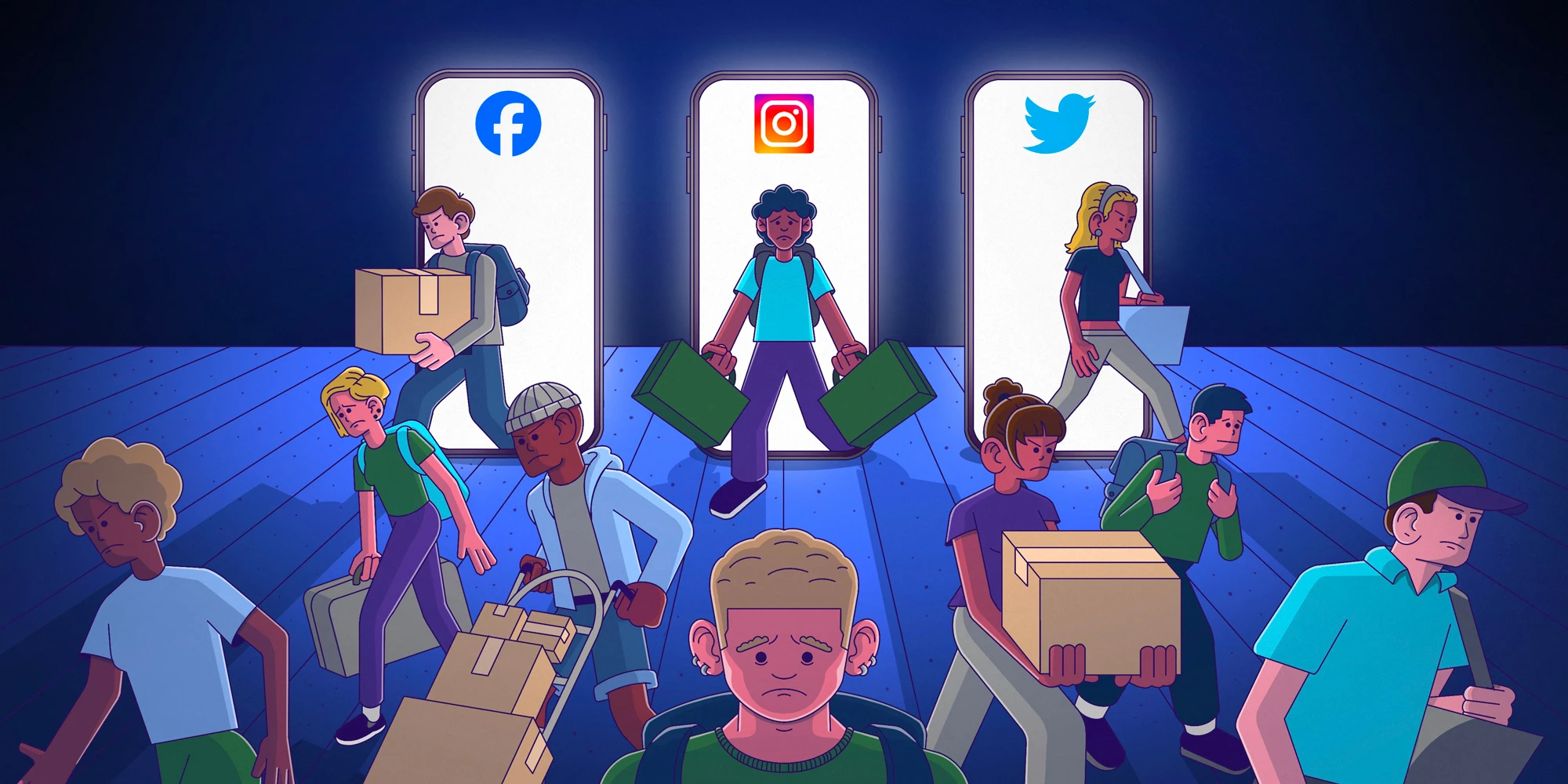Where next for social media?
There’s nothing new about the idea of a splinternet or original about observing that people are retreating to dark forests of social media. I’m using this post about how social media is changing to also share a few links about Twitter (I’m not calling it “X”)
On Monday, my co-op will be running a proposal as to whether to deactivate our Twitter account. To my mind, we should have done it a long time ago. Engagement is non-existent, the whole thing is now a cesspool of misinformation, and even Bloomberg is publishing articles stating there is a moral case for no longer using it. The results are likely to be negligible.
The trouble is that, although I don’t particularly want there to be another dominant, centralised platform, getting yourself noticed (and getting work) becomes increasingly difficult. I guess this is where the POSSE model comes in: Publish (on your) Own Site, Syndicate Elsewhere.

In a way, the pluriverse is already here. People can be active on half a dozen social-media apps, using each for a unique purpose and audience. On "public" platforms such as LinkedIn and X, formerly Twitter, I carefully curate my presence and use them exclusively as public-broadcasting tools for promotions and outreach. But for socializing, I retreat to various tight-knit, private groups such as iMessage threads and Instagram's Close Friends list, where I can be more spontaneous and personal in what I say. But while this setup is working OK for now, it's a patchwork solution.Source: The Age of Social Media Is Changing and Entering a Less Toxic Era | Business Insider[…]
But for all its flaws, I have depended on big platforms. My job as a freelance journalist hinges on a public audience and my ability to keep tabs on developing news. The fatigue I have felt is therefore partly fueled by another, more-pressing concern: Which social network should I bank on? It isn’t that I don’t want to post; I just don’t know where to do it anymore.
[…]
I’ve spent the past few months on Mastodon and Bluesky, a Jack Dorsey-backed decentralized social network, and have found them the best bets so far to replace Twitter. Their clutter-free platforms already match the quality of discourse that was on Twitter, albeit not at the same scale. And that’s the only problem with these platforms: They aren’t compatible with each other or big enough on their own to replace today’s giants. While there are efforts to bridge them and allow users to interact across the platforms, none have proved successful.
If these and other decentralized platforms find a way to merge into a larger ecosystem, they will force big platforms to change their tune in order to keep up. And hopefully, that future will yield a more balanced and regulated online lifestyle.
[…]
The other problem is that users have very little control over what they experience online. Studies have found that news overload from social media can cause stress, anxiety, fatigue, and lack of sleep. By democratizing social media, users can turn those negative health effects around by taking more control over who they’re associated with, what they look at in their feeds, and how algorithms are influencing their social experience. And by splintering our time across a variety of platforms — each with a different approach to content moderation — the online communication ecosystem ends up better reflecting the diversity of the people who use it. People who wish to keep their data to themselves can live inside tight-knit circles. Those who don’t want a round-the-clock avalanche of polarizing content can change what their feed shows them. Activists looking to spread a message can still reach millions. The list goes on.